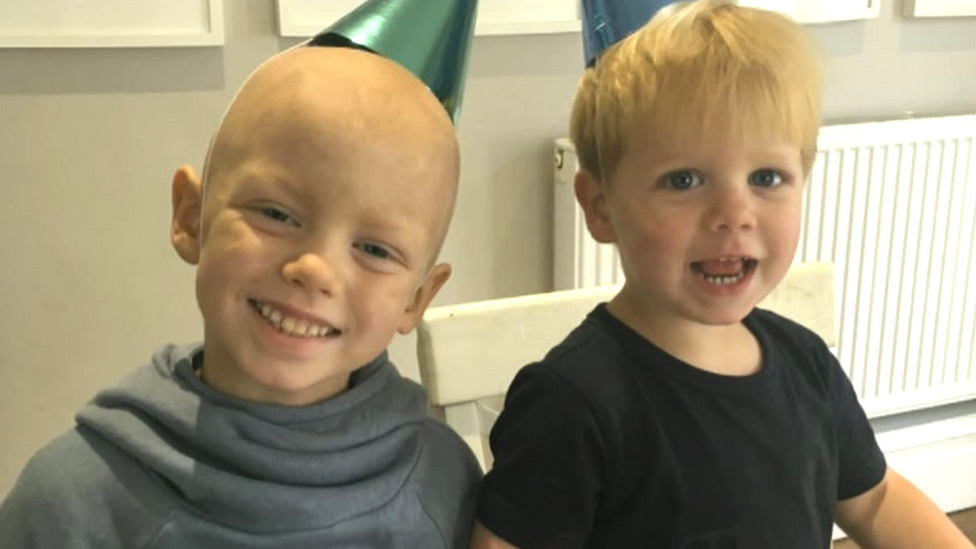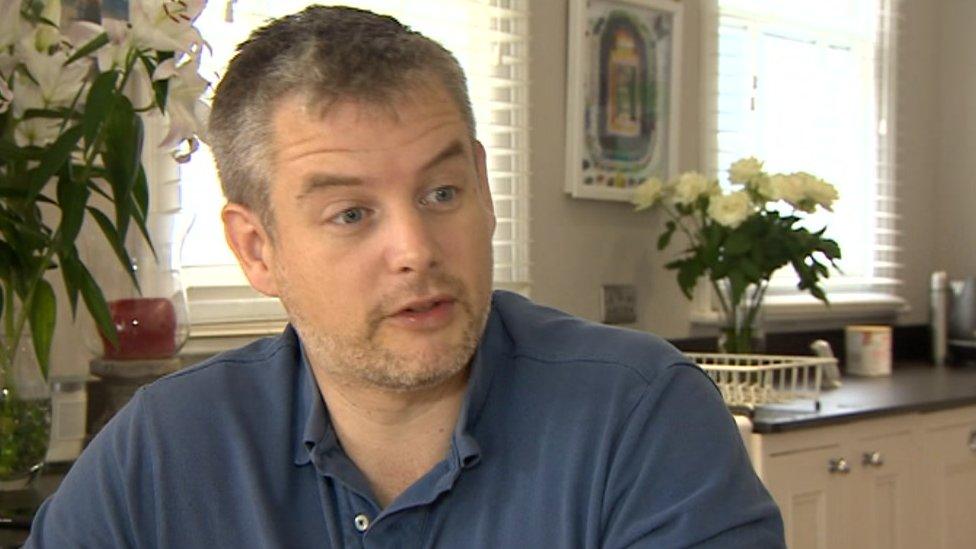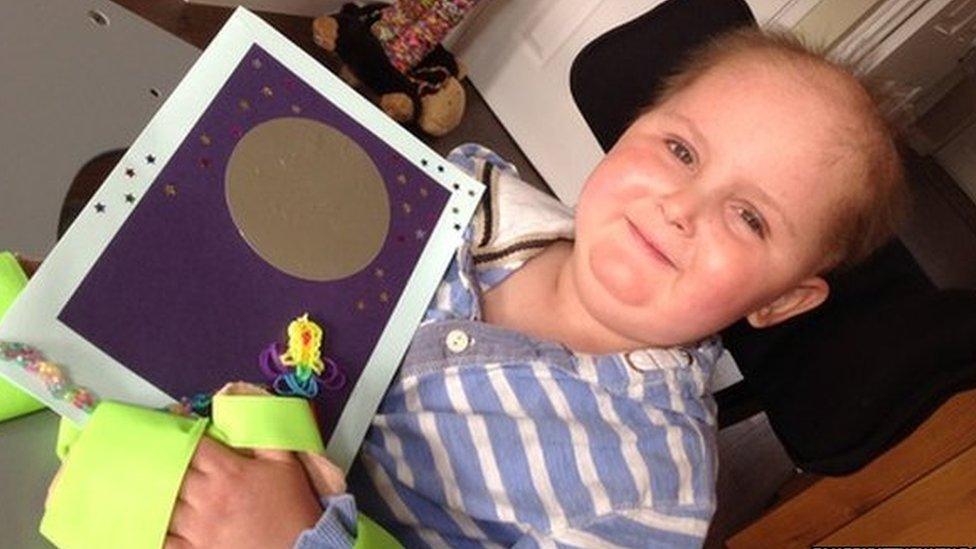Bristol family support new research into aggressive children's cancer
- Published

John Rainsbury said Will (left), pictured with his younger brother Josh, "loved life"
A father from Bristol whose six-year-old son died from a brain tumour is helping to fund a new project to find better and more effective treatments.
John Rainsbury's son Will died in 2019, nine months after going into hospital with a suspected stomach bug.
The new five-year research project will be based at Newcastle University.
Mr Rainsbury said of current treatments that "a good outcome is lifelong disabilities. A bad outcome is it doesn't work."
He said of Will: "He loved life, full of energy. After five rounds of chemo he'd be playing football on the wards with the nurses or shooting them with a Nerf gun.
"He didn't let the treatment or the disease get him down."

John Rainsbury said his family are following Will's example by having the courage to continue the fight against cancer.
Will's family set up a charity called Little Hero and raise money in his memory. As well as partly funding the new research the charity is also setting up a woodland retreat in Devon for children with cancer and their families to have a break from treatment and a free holiday.
As part of the research scientists will be testing new drugs with the aim of eliminating group three medulloblastoma tumours.
These tumours are one of the major challenges in childhood cancer, driven by the presence of a gene called MYC.
This tumour group occurs almost exclusively in young children and is essentially incurable, contributing significantly to overall childhood cancer death rates.
Low survival rates
Professor Steve Clifford is the principal investigator of the new research, called INSTINCT-MB. He said: "Although they're only a small proportion of childhood cancer, almost all children that get this particular type of cancer sadly die at the moment.
"So really our goal is for the first time to develop therapies which are actually effective, because current therapies aren't."
At the moment overall 80% of children with cancer survive, but fewer than 5% of children with this particular type of cancer survive.
The family of Skye Hall from Abingdon, who died aged five in 2014, are also helping fund the research, alongside Children with Cancer UK.

Follow BBC West on Facebook, external, Twitter, external and Instagram, external. Send your story ideas to: bristol@bbc.co.uk , external
Related topics
- Published23 September 2021
